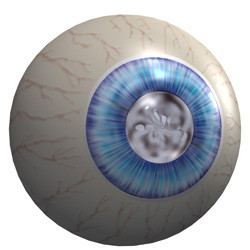An innovative treatment of neovascular glaucoma
Neovascular glaucoma (NVG) is a very aggressive form of glaucoma that accounts for nearly 4 % of all glaucoma cases. It is mainly associated with ischaemic central retinal vein occlusion (iCRVO) and often leads to blindness as well as removal of the eyeball due to severe pain. Current treatments include lowering the intraocular pressure, laser therapy or administration of anti-angiogenic compounds. However, the limited efficacy of these approaches necessitates the need for new alternative strategies in an early phase of NVG. With this in mind, partners on the EU-funded 'European consortium for the study of a topical treatment of neovascular glaucoma' (STRONG)(opens in new window) initiative propose a different approach to halt the release of angiogenic factors. Their strategy is based on the use of antisense oligonucleotides against insulin receptor substrate 1. Results from previous studies indicate the potential of this oligonucleotide to inhibit vascular endothelial growth factor secretion, which seems to play a key role in the pathogenesis of NVG. STRONG will evaluate the efficacy of the antisense oligonucleotide to inhibit neovascularisation in a randomised phase II/III trial. It will also study a large cohort of patients to provide information on the natural course of NVG, paying particular attention to risk factors and biomarkers for the development and progression of NVG. A further objective is to improve the early diagnosis of NVG by image and biomorphometric analyses. The consortium has received approval for a clinical trial that will test the use of antisense oligonucleotides as a preventative intervention for NVG. So far a total of 28 centres across 7 countries have expressed interest in participating in the trial. Most documents and standard operating procedures have been finalised alongside an electronic data capture system. Outcomes of the STRONG clinical trial should validate the targeted prevention of angiogenesis as an innovative treatment of NVG following iCRVO. The topical, non-invasive nature of the proposed intervention offers a significant advantage to existing procedures.





